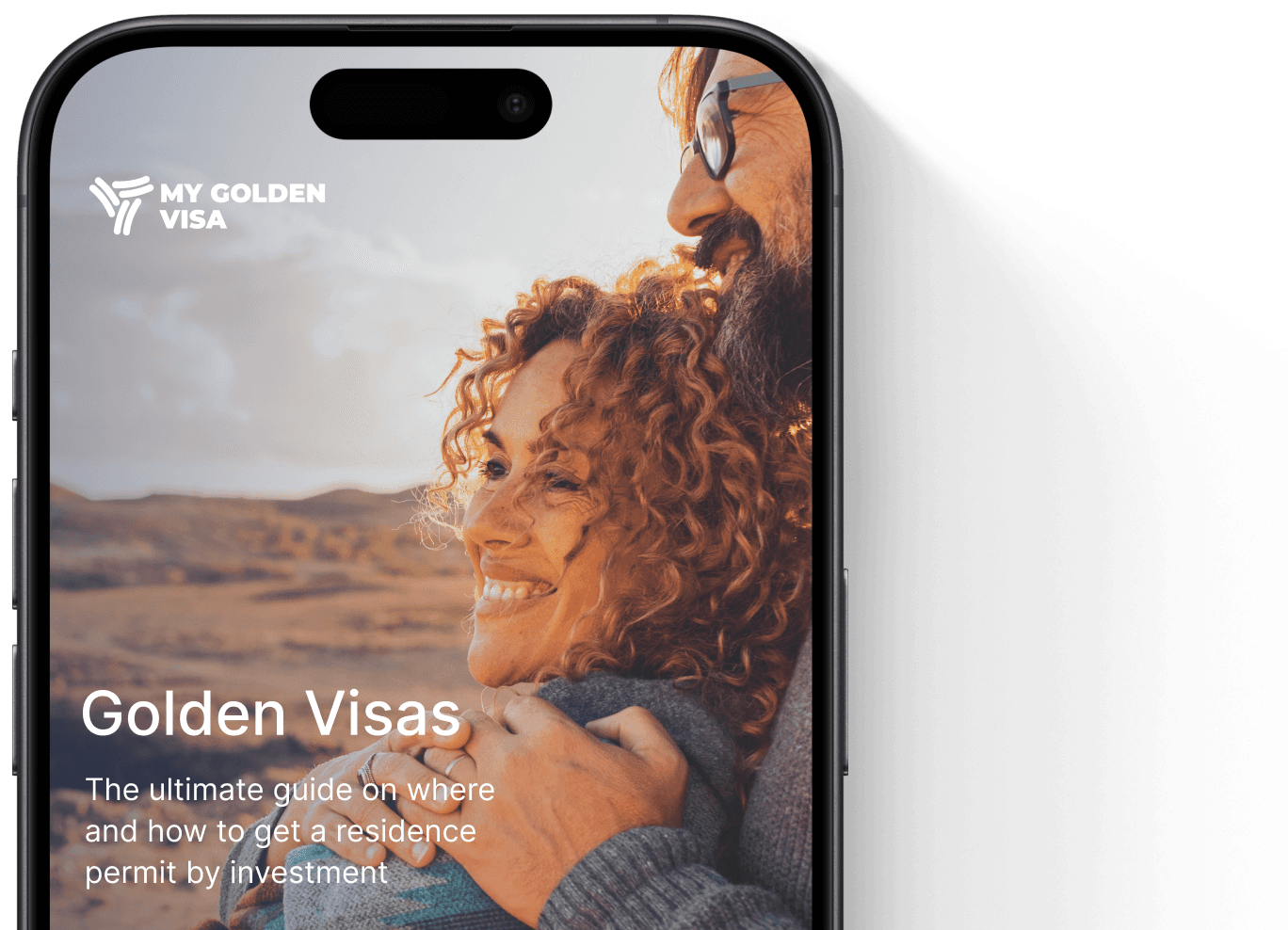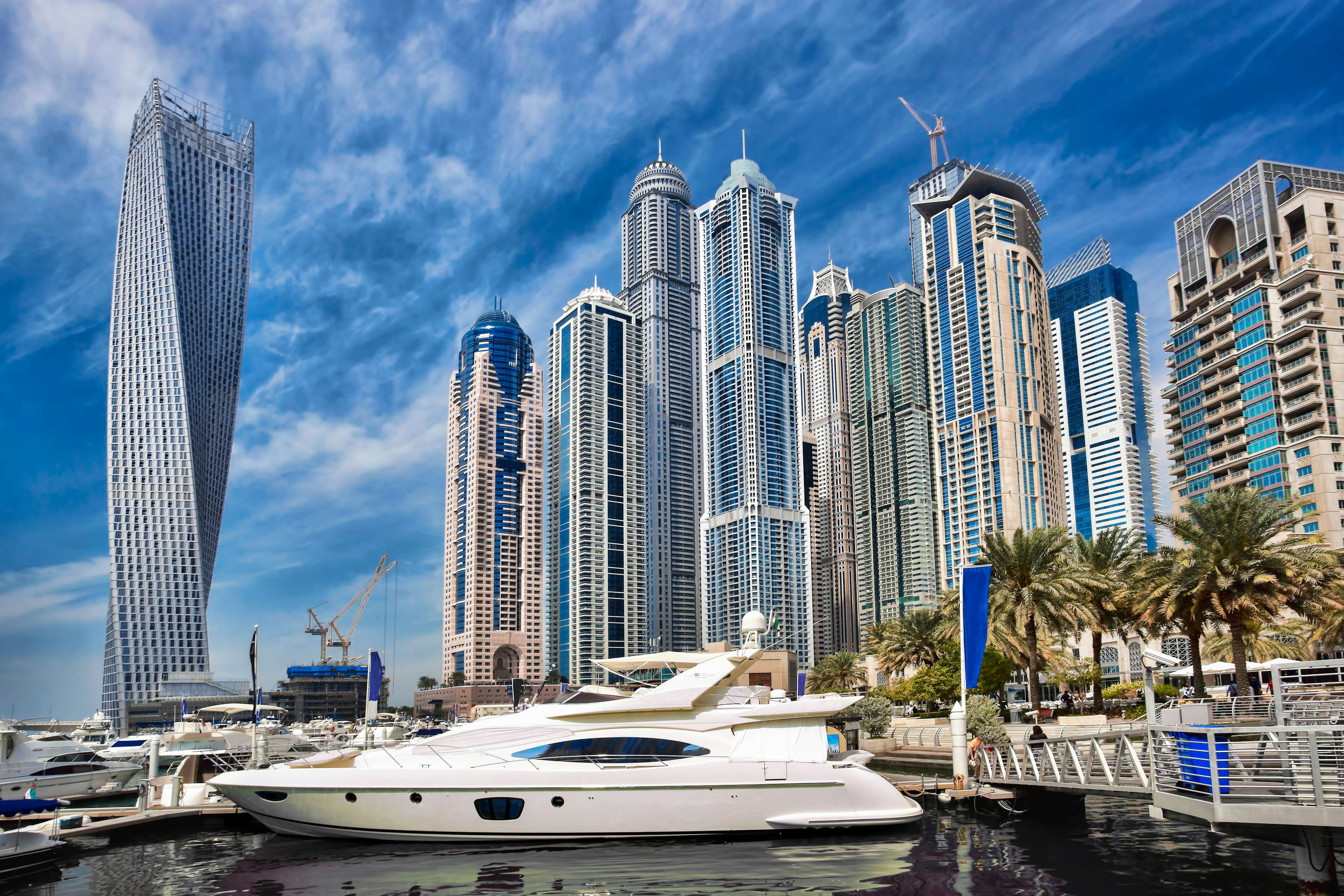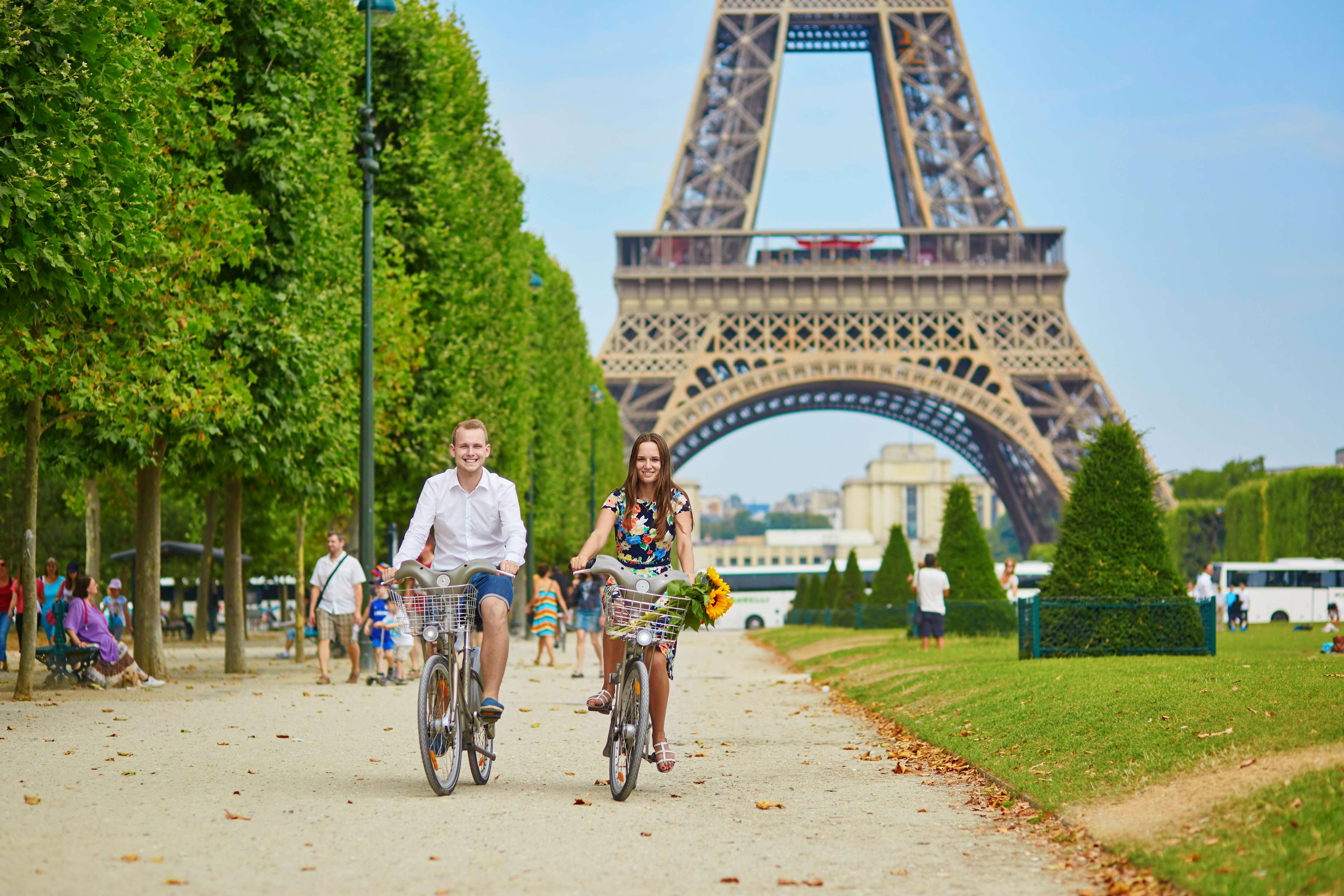When considering second citizenship, many investors compare the benefits of Caribbean citizenship-by-investment programs with those offered by other countries.
Caribbean nations such as St Kitts and Nevis, Antigua and Barbuda, and others stand out for their fast processing times, typically around 6 months, and their lower investment thresholds, starting at $200,000. These programs also offer significant tax advantages, including no personal income tax, and allow investors to apply for second passports together with their family members.
In this article, you will learn how to choose the best investment option for your personal and financial goals.

Caribbean Countries with Golden Visa Programs: Ultimate Guide
Share:
Overview of Caribbean Golden Visas
Caribbean Golden Visas, also known as Caribbean citizenship-by-investment programs, offer foreign investors the opportunity to obtain citizenship in exchange for economic contributions. These investment programs are particularly attractive due to the speed and simplicity of the application process, often taking 6—8 months.
The primary countries offering Golden Visas in the Caribbean are:
Antigua and Barbuda.
Dominica.
Grenada.
St Kitts and Nevis.
St Lucia.
Investors and their families are not required to take language or history exams, nor are they obligated to reside in the country continuously. The only exception is Antigua and Barbuda, where investors must spend a minimum of 5 days in the country within the first 5 years of citizenship.
The core investment options usually include:
real estate purchases;
contributions to government development funds;
investment in approved businesses.
By securing a Caribbean Golden Passport, individuals gain access to a range of benefits, such as visa-free travel to many countries, favourable tax environments, and the ability to pass on citizenship to family members.
Based on the 2023 CBI Index, St Kitts and Nevis has emerged as the leader in the Caribbean citizenship-by-investment (CBI) programs, thanks to its proactive approach in addressing international regulatory pressure.
St Kitts and Nevis, Dominica, and Grenada stand out as the top performers in 2023, with their adaptability and commitment to international standards solidifying their positions in the market.
The CBI Index evaluates 12 citizenship by investment programs based on nine key criteria: freedom of movement, quality of life, minimum investment, travel or residency requirements, time to citizenship, ease of application, Due Diligence, family inclusion, and product reliability.
Comparison of Caribbean Golden Visas
11 Advantages of Golden Passport in Caribbean Countries
1. Increased global mobility. With a Caribbean Golden Passport, you can travel without a visa or obtain a visa on arrival to many countries. For example, citizens of Dominica enjoy visa-free access to over 140 countries, offering extensive travel flexibility.
2. Tax benefits. Caribbean nations, like Antigua and Barbuda or St Kitts and Nevis, offer attractive tax regimes. These countries impose no personal income tax, no capital gains tax, and no inheritance tax, making them ideal for individuals seeking to optimise their global tax obligations and retain more of their wealth.
3. Dual citizenship. All five Caribbean countries allow you to retain your original citizenship while enjoying the benefits of Caribbean citizenship. This is especially valuable for individuals who want to maintain their existing nationality while gaining the perks of a second passport for travel and business opportunities.
4. Fast processing. Unlike other citizenship-by-investment programs in Turkey and Egypt, the Caribbean offers a swift path to citizenship. For instance, the St Kitts and Nevis program is renowned for granting citizenship within only 6 months.
5. Family Inclusion. Investors can include family members such as spouses, dependent children, and parents — in some cases, even siblings and grandparents — in their citizenship applications.
In 2023, the contribution amount to the St Kitts and Nevis fund has been reduced:
for a family of up to four people: $350,000 → $250,000;
additional contribution for a relative under 18: $50,000 → $25,000;
additional contribution for a relative over 18: $75,000 → $50,000.
6. Affordable investment options. Caribbean CBI programs are among the most affordable in the world. For example, Dominica’s minimum investment for both options, including real estate purchases, is $200,000 for a single applicant, making them accessible to a broad range.
For comparison, obtaining citizenship by investment in Turkey will require an investment of $400,000 or more. European countries like Greece require a minimum investment of €250,000 for a Golden Visa, while Spain sets a much higher threshold at €500,000 for real estate purchases. These differences highlight how Caribbean programs, with their lower financial entry points, are particularly appealing to a broader range of investors looking for a second passport.

Discover 9 most popular Golden Visa programs and choose the best one for your goals.
7. Real estate investment. In addition to securing citizenship, investors can also benefit from real estate opportunities. You can invest in luxury resorts or residential properties with prices starting with the potential for both personal use and rental income of 2—5%.
8. Obtaining a US visa. Caribbean Golden Visas also offer the opportunity to apply for a US E‑2 visa for certain countries, like Grenada. The E‑2 visa is especially appealing for investors who seek access to the US market, as it provides a legal pathway to live and operate a business in the US without the complexities of other visa categories.
9. Quality of life. The Caribbean is renowned for its high quality of life: residents enjoy beautiful beaches, warm weather, and top-tier amenities.
In St Lucia, notable beaches such as Anse Chastanet and Sugar Beach offer breathtaking views and crystal-clear waters, making it an ideal destination for relaxation. Similarly, Antigua is famous for Half Moon Bay and Dickenson Bay, which provide pristine sands and a peaceful atmosphere.
In addition to these lifestyle benefits, Caribbean nations also offer access to quality healthcare and education. For example, St Lucia is home to St. Anthony Medical Center, a private facility that provides advanced medical care.
As for education, the University of the West Indies (UWI) has campuses in multiple Caribbean countries, offering a range of academic programs.
10. Privacy and security. Caribbean nations are committed to protecting the privacy of their citizens with strict data protection laws. For example, Antigua and Barbuda ensures that citizenship details are confidential and not disclosed to third parties, providing peace of mind for those seeking a secure and private second citizenship.
11. CARICOM benefits. Caribbean citizenship by investment grants access to the benefits of the Caribbean Community, or CARICOM. These include the right to live and work visa-free across 15 Caribbean countries, which means increased mobility within the region and simplified real estate investments. Citizens are exempt from certain licensing requirements, making property purchases more accessible.

The Caribbean Community’s geography primarily spans the Caribbean Sea, though a few member states extend beyond the Caribbean region
Antigua and Barbuda
Antigua and Barbuda Golden Visa is ideal for individuals seeking global mobility and tax optimisation.
To obtain citizenship, you can invest €300,000 in real estate, donate €230,000 to the National Development Fund, or invest €400,000 in a business. Contribution to the University of the West Indies Fund requires a minimum amount of €260,000 for the family of six.
To qualify, you can include your spouse, children under 30, and parents or grandparents over 55 in the application. Additionally, dependent siblings under 18 can also be included.
Dominica
Dominica Golden Visa stands out for its affordability and the simplicity of its application process. It’s especially suited for eco-conscious investors who value sustainable living and natural beauty.
Dominica citizenship is available for investors also under two investment routes:
A donation of at least $200,000 to the Economic Diversification Fund.
Real estate investment requires a minimum of $200,000.
With this program, you can include your spouse, children under 30, parents, and grandparents in your application.
Grenada
Grenada Golden Visa is popular for its access to the US E‑2 visa, which allows citizens to live and work in the United States. This program is a great choice for those interested in US residency, as well as access to other international markets.
To acquire Grenada citizenship, investors choose one of two investment options:
Non-refundable contribution to the National Transformation Fund — $235,000.
Government-approved real estate purchase — $270,000+.
You can include spouses, children under 30, parents, grandparents, and siblings under 18 in your application.
St Kitts and Nevis
The citizenship by investment program in St Kitts and Nevis is the longest-running in the world, having been established in 1984.
St Kitts and Nevis offers the oldest citizenship by investment program with a minimum investment amount of $250,000. You can invest in real estate or contribute to the Sustainable Growth Fund.
Eligible family members include spouses, children under 25, and parents or grandparents over 65.

St Kitts and Nevis citizenship is hereditary, meaning your children and future generations can inherit the same benefits of citizenship without additional costs
St Lucia
St Lucia’s Citizenship-by-Investment Program offers a variety of flexible investment options, making it attractive for investors with different financial goals. It’s particularly suitable for those who want to diversify their investments through real estate or government bonds.
There are five investment options to choose from:
A non-refundable contribution to the National Economic Fund — $240,000+.
Purchase of non-interest-bearing government bonds — $300,000+.
Purchase of approved real estate — $300,000+.
Investment in approved enterprise projects — $250,000+.
Business investment — $1,000,000+.
To qualify, the main applicant can include their spouse, children under 30, and parents over 55. Additionally, dependent siblings under 18 can also be included.
How to obtain Caribbean Golden Passport
The steps vary slightly by country, but the overall process is similar across the Caribbean nations offering CBI programs. Investors can obtain a Caribbean second passport within 6—8 months.
Under the law, investors are not permitted to apply for citizenship by investment independently. Instead, the application must be submitted through a licensed program agent. These agents guide investors through each step of the citizenship process, from document preparation to final approval, ensuring compliance with legal requirements.
1 day
Preliminary Due Diligence
To prepare for a Due Diligence check in the Citizenship by Investment unit, a licensed agent conducts a preliminary check of the investor’s diligence. This helps identify potential issues and reduce the risk of refusal.
The preliminary Due Diligence check is confidential. The investor only needs to provide their passport.
To prepare for a Due Diligence check in the Citizenship by Investment unit, a licensed agent conducts a preliminary check of the investor’s diligence. This helps identify potential issues and reduce the risk of refusal.
The preliminary Due Diligence check is confidential. The investor only needs to provide their passport.
2 to 4 weeks
Preparation of documents
The licensed agent prepares a set of documents required to apply for citizenship, which they then submit to the country’s CBI unit.
The licensed agent prepares a set of documents required to apply for citizenship, which they then submit to the country’s CBI unit.
2 to 6 months
Due Diligence
The CBI unit of the chosen country processes the investor’s documents and checks background information on the investor and their family in international databases.
Applicants over 16 also undergo a mandatory interview, which can be conducted online.
The CBI unit of the chosen country processes the investor’s documents and checks background information on the investor and their family in international databases.
Applicants over 16 also undergo a mandatory interview, which can be conducted online.
1 to 3 months
Approval and fulfilment of investment conditions
After receiving approval, the investor fulfils the investment requirement by making a contribution, purchasing real estate, or investing in government bonds or a business.
After receiving approval, the investor fulfils the investment requirement by making a contribution, purchasing real estate, or investing in government bonds or a business.
Up to 4 weeks
Receiving a passport
The CBI unit issues a naturalisation certificate and then a passport. The documents are sent by courier to the investor’s address.
Some countries have special requirements at this stage. In St Kitts and Nevis, the documents must be collected in person.
The CBI unit issues a naturalisation certificate and then a passport. The documents are sent by courier to the investor’s address.
Some countries have special requirements at this stage. In St Kitts and Nevis, the documents must be collected in person.
Caribbean vs. EU Сitizenship: Key Differences
When comparing routes to citizenship in the Caribbean countries to those in the European Union, there are several key differences that investors should consider.
Investment кequirements. The investment thresholds in the Caribbean are significantly lower compared to EU programs. For example, in Dominica, citizenship can be obtained with a donation of $200,000 or with the same amount of real estate investment.
In contrast, Malta citizenship by naturalisation for exceptional services by direct investment requires a much higher investment. To qualify, investors must:
contribute a minimum of €600,000 to the government fund;
invest €700,000 in real estate or rent a property for at least €16,000 per year for five years;
donate €10,000 to a local charity.
Processing time. Caribbean CBI programs are known for their quick processing times. Citizenship can typically be granted within 6—8 months.
The Malta citizenship by naturalisation for exceptional services by direct investment has a much longer timeline. Applicants must go through a 12-month residency period before they can qualify for citizenship.
No other country in the EU offers a swift path to citizenship by naturalisation; instead, in certain countries, an investor can obtain a residence permit for investment, also known as the Golden Visa. After holding this type of visa for several years, the investor is eligible to apply for citizenship by naturalisation. For example, in Greece, the minimum threshold for a Golden Visa is €250,000, and the citizenship might be granted at least 7 years later.
Tax benefits. Caribbean countries generally offer favourable tax regimes, including no personal income tax, no capital gains tax, and no inheritance tax. In contrast, EU citizenship typically does not involve any tax benefits.
Alternative Routes to Caribbean Citizenship
While Caribbean Golden Visas are the most well-known method for obtaining Caribbean citizenship, there are several alternative paths available, depending on the country and personal circumstances. Here are some common alternatives.
Naturalisation. This is one of the most traditional routes to citizenship. In most Caribbean nations, you can apply for naturalisation after living in the country for a certain number of years. For example, Antigua and Barbuda offer naturalisation to long-term residents after 7 years of living in the country, though this process takes longer compared to the golden visa options.
To qualify, you must maintain legal residency throughout this period, demonstrate good character, and often show basic knowledge of the country’s laws, language, and culture.
Citizenship through marriage. Marriage to a citizen of a Caribbean nation can be another pathway to citizenship. For instance, Dominica allows foreigners to apply for citizenship after being married to a local citizen for 3 years. Applicants must usually demonstrate that the marriage is legitimate and not solely for immigration purposes.
Descent. Caribbean nations grant citizenship through descent if you can prove that one or both of your parents, or even grandparents, were born in the country.
These alternative routes may take longer than citizenship-by-investment programs, but they provide additional options for those who do not wish to go through the CBI process or who qualify through family ties, marriage, or residency. Each country has its own specific requirements, so it’s essential to research the best fit for your situation.
Wrapping Up: Why a Caribbean Golden Passport Could Be Your Best Investment
By obtaining a Caribbean Golden Passport, you can secure citizenship in St Kitts and Nevis, Antigua and Barbuda, Dominica, Grenada, or St Lucia. Each country offers its own unique benefits, including visa-free travel, tax advantages, and a fast path to citizenship through investment.
All five countries offer tax-friendly regimes with no personal income, inheritance, or capital gains tax, making them attractive for high-net-worth individuals looking to optimise their global tax situation.
Investing in real estate is a common path to citizenship in the Caribbean, providing not only residency but also the potential for property appreciation in countries like St Kitts and Nevis or Antigua and Barbuda.
Each Caribbean Golden Visa program allows you to include family members in your application, such as spouses, children, parents, grandparents, and in some cases even siblings, ensuring your entire family can benefit from second citizenship.

Download our complete guide to learn everything you need about 9 popular Golden Visa programs.
Benefits
Investment options
Eligibility requirements
Processing times











